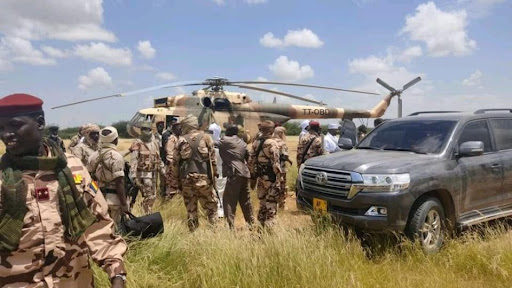27 Die In Resource Linked Intercommunal Violence In Chad
A Chadian government delegation has visited the Southeast of the country ravaged by resources-related conflict.

Intercommunal conflict in Tiyo village located in Chad’s Ouaddai province in the Southeast region of the country has left 27 persons dead and four injured.
“Yesterday it was Moito, today it is Abeché, the land conflict continues to kill. For plots of land, the Chadians are killing each other! 27 inhabitants of the villages Kidji-Mira and Tiyo died this Sunday, Sept. 19. disputing an area of about 25 km2, ” Mahamat Ahmat Alhabo, the country’s Minister of Justice, was quoted as saying.
On Monday, Sept. 20, it was reported that Daoud Yaya Brahim, the minister of Defense, Souleyman Abakar Adam, minister of Public Security and the minister of Justice arrived at Ouaddai capital of Abeche aboard a military helicopter to assess the situation.
Mahamat Idriss Déby Itno, the leader of the Transitional Military Council (TMC) also offered his condolences to the victims of the intercommunal conflict on Monday.
“Following the macabre inter-community clash that occurred in Tyo in the vicinity of Abéché, we would like to offer our most sincere condolences to the families of all the victims and to wish speedy recovery to those injured,”he posted on Twitter.
In December 2020, at least eight persons were killed in intercommunal clashes in the region.
Brahim Seid Mahamat, the Governor of Ouaddai province, told Anadolu Agency that “Ouaddaian farmers clashed with Fulani herders in the locality of Dourrene located about 20 kilometers (12.4 miles) east of the city of Abeche.”
In August 2019, 37 persons were killed after violence broke out over three days in Ouaddai province.
An International Crisis Group report in 2019 stated that intercommunal violence, particularly between Arabs and non-Arabs, has ravaged eastern Chad throughout 2019.
It added that “tensions have mostly pitted majority groups in Ouaddaï and Sila provinces against Arabs. These conflicts flow in part from established rivalries between herders and farmers but also derive from deeper identity-based competition over land, traditional authority and local political positions.”
Support Our Journalism
There are millions of ordinary people affected by conflict in Africa whose stories are missing in the mainstream media. HumAngle is determined to tell those challenging and under-reported stories, hoping that the people impacted by these conflicts will find the safety and security they deserve.
To ensure that we continue to provide public service coverage, we have a small favour to ask you. We want you to be part of our journalistic endeavour by contributing a token to us.
Your donation will further promote a robust, free, and independent media.
Donate HereStay Closer To The Stories That Matter




